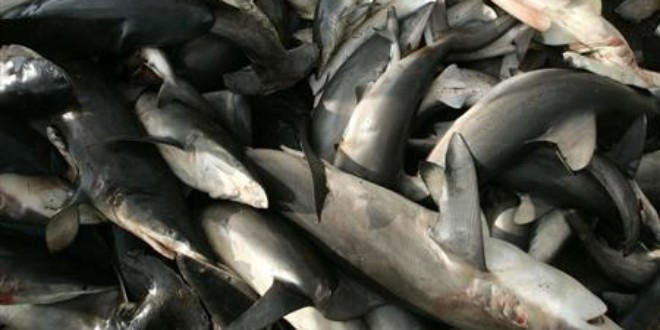(Fom uk.reuters.com) – Three shark attacks in Australia in two days this week sparked a global media frenzy of “Jaws” proportions, but sharks are more at risk in the ocean than humans with man killing millions of sharks each year. Sharks are the top of the marine food chain, a powerful predator which has no match in its watery realm, until man enters the ocean. Commercial fishing and a desire for Asian shark fin soup sees up to 100 million sharks, even protected endangered species of sharks, slaughtered around the world each year, says the Shark Research Institute (Australia).
Yet in contrast, sharks, apparently, do not like the taste of humans. Very few shark attacks involve the shark actually eating the human, unlike a land-based predator like a lion or tiger.”Most of the incidents in the (Florida-based) global shark attack file have nothing to do with predation,” says the Institute on its website (www.auscyber.net).
“Sharks are opportunistic feeders. They hear us in the water, we sound like a thrashing fish or animal in the water, and they just react to that instinctively and go to take a bite,” marine analyst Greg Pickering told local radio on Wednesday.
According to the latest figures by the International Shark Attack File, there was only one fatal shark attack in 2007. It took place in New Caledonia in the South Pacific. The mean number of deaths between 2000 and 2007 was 5 a year.
“You have more chance of being killed driving to the beach,” said John West, curator of the Australian Shark Attack File at Sydney’s Taronga Zoo.
Shark attacks are on the rise worldwide, but according to the International Shark Attack File, that doesn’t mean there is an increased rate of shark attacks.
“As the world population continues its upsurge and interest in aquatic recreation concurrently rises, we realistically should expect increases in the number of shark attacks,” says the file on its website (www.flmnh.ufl.edu).
There are 30 sharks, including the Great White, on the International Union for Conservation of Nature’s threatened species list.
“Sharks need our help now and we cannot let our fear push them to the brink of extinction,” says Ben Birt, from Australia’s Nature Conservation Council, which has launched a “Save Our Last Sharks” campaign.
(By Michael Perry)
 Ocean Sentry
Ocean Sentry




